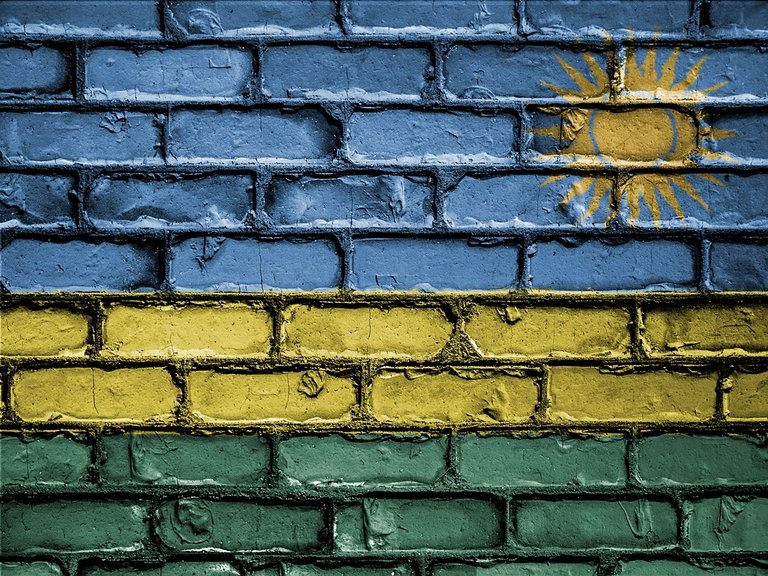The Rwandan Genocide of 1994 was fueled by many years of hatred amongst the Tutsi and the Hutu tribes. The story starts as the country was being colonized by Belgium. The Belgians ruled through indirect rule, so they had the Tutsi’s run the country. Belgium took from Rwanda much of the natural resources there. They made the Tutsi beat and punish those Hutu who did not produce enough resources as demanded by Belgium. After many years, the Belgians released control of Rwanda, stripped of its resources. After colonization ended, the Hutu majority overtook the country, and the militia group, the Interhamwe, killed many Tutsi out of hatred. Since the few months in 1994 when genocide occurred, the country has grown more unified, are stronger politically, and have become much more economically sound.
A huge part of becoming unified comes from the forgiveness that many Hutu extremists, especially those who were members of the Interhamwe, have received from Tutsi. Most of these Tutsi were personally affected, having a mother, brother, father, sister, friend, or child murdered, yet they forgive those who took these people away. The reason mainly lies in their faith. Most people living in Rwanda are Christian; 57 percent of the people are catholic. After the genocide concluded, many organizations such as the Catholic Relief Services and the Community Healing and Reconciliation Program, taught many Tutsi that they should forgive the Hutu. The belief in God and their faith teaches forgiveness as well, which helped these people move on and forgive. One man, Fidele Mparikubwimana, shares his story of how he was a killer of Tutsi, but after the genocide, spending more than a decade in prison, and participating in the justice and peace commission, he learned he went wrong and begged one Hutu he personally hurt for her forgiveness. The woman, Esperance M’Mugemana said, “But he came to ask me forgiveness. I told him, if you ask from deep within your heart, I forgive you.” This is only one of many situations organizations like the CRS helped occur, with God’s message of love and compassion. Another aspect of the growing social bonds between people here, thus improving the country, is their togetherness. The people, on the last Saturday of each month, participate in Umaganda, a day where everyone in the country takes care of things such as road repairs, or building and maintaining local facilities. These events expose the togetherness of all people, Tutsi or Hutu, as they work side by side to better the country for themselves and future generations.
A strong country needs many things, but maybe the most important is a strong economy. To President Paul Kagame, that’s what it’s all about. Rwanda’s economy since the genocide has been growing rapidly. First, Kagame had a set of guidelines to make the country great, specifically their economy. He wanted everyone to speak English, the airports to not be corrupt, and super-fast internet because this would lead to companies along with economic interest being drawn to Rwanda, which it did. Next, one of the major exports in many African and South American countries is coffee; Rwanda is no exception. Rwanda previously had low quality coffee. With the help of Americans who specialized in soil management and crop production, this was then turned into premium high-grade coffee. Paul Kagame wants the best for his people and his country often researches other countries and cities who have some of the strongest economies in the world such as Singapore. Rwanda desires to follow these places paths to success.
For a new country to have success, they cannot be politically divided or unorganized. Rwanda is no exception to that. Rwanda protects its people from discrimination thus halting another genocide to occur. The constitution does not allow political organizations based on sex, race, tribe, clan, religion or any other category that may lead to prejudice. This law is a great example of political growth in Rwanda since the government has realized this will prevent another genocide. Another sign of political growth in Rwanda since the Genocide of 1994 is the governments active and rapid shut down of any propaganda or ideas that may be linked with “genocide ideology” or “divisionism.” The media says this is an example of Paul Kagame shutting down political opposition against his regime, however it is also viewed by others as protection of the political and social climate of the country. Queen Mary University of London says, “In the run up to the 2010 presidential elections the only legal opposition party was unable to stand after the party's leader, Bernard Ntaganda, was arrested for ‘genocide ideology’ and ‘divisionism’ two months before the polls opened.” This quote reinstates that any sign of danger resulting in political unrest is demolished, thus alluding to the growth in politics of the country.
The Rwandan Genocide was a major event in Sub-Sahara African history resulting in hundreds of thousands of dead humans. Since the event, the country has rebounded and shaped a country that is an ideal model of a country on the path to being great one day. Through mending the bonds between Tutsi and Hutu alike and through allowing these two groups to work together to accomplish great things to better the nation, the country has bettered the social climate of Rwanda. By improving the quality of major exports and through unifying the economy, Rwanda and President Paul Kagame have introduced a quality economy to the country. Finally, laws and political practices against genocide ideology thus dividing the nation are ceased to improve the politics in Rwanda. Rwanda still has a long road ahead to becoming a national superpower such as America, but since the genocide, they have traveled a far ways and become an overall better nation because of it.

Thank you for the history of Rwanda 🇷🇼 it’s was so well written... I hope the best for the country now
As do I, Thanks for the feedback.